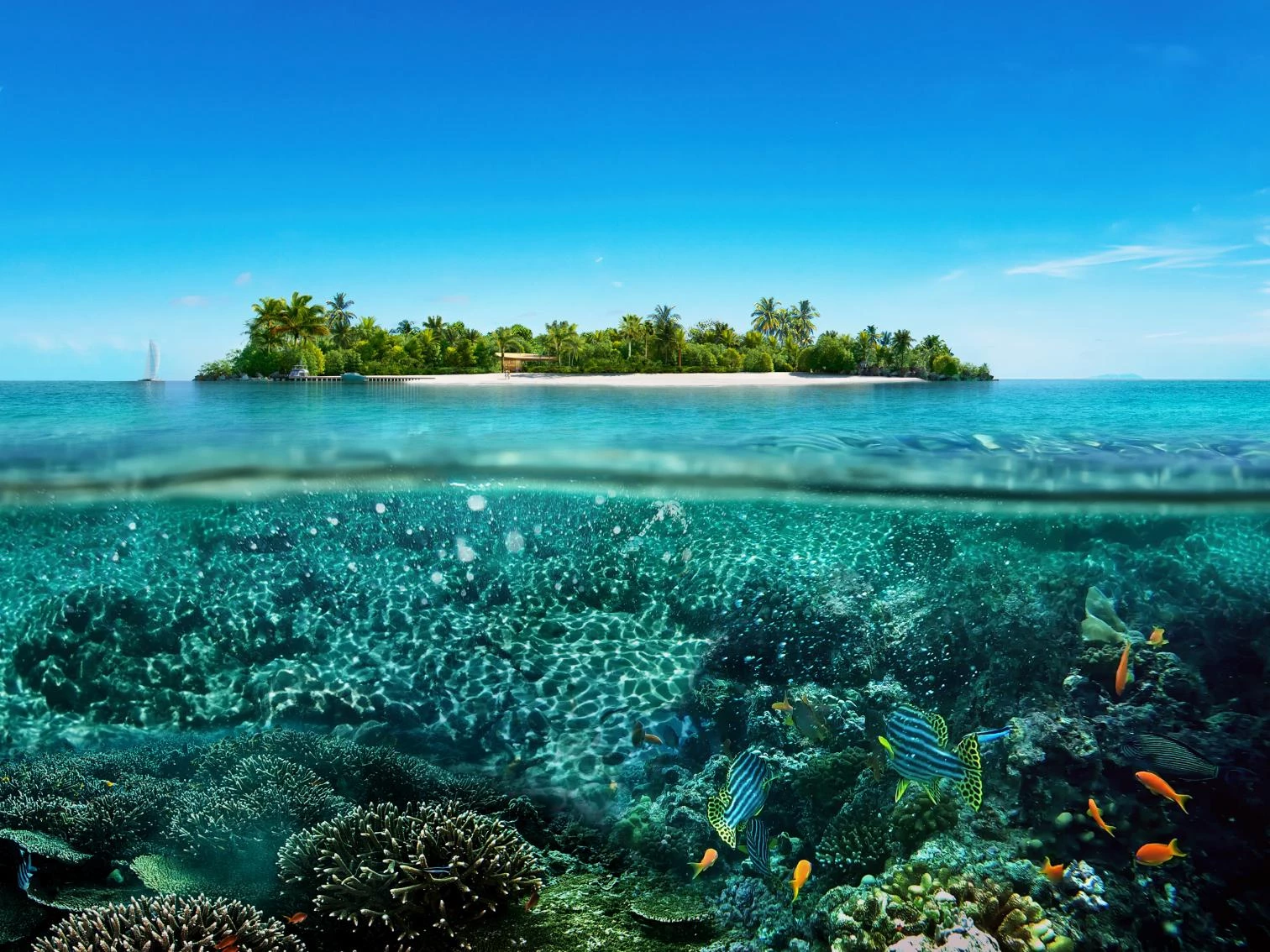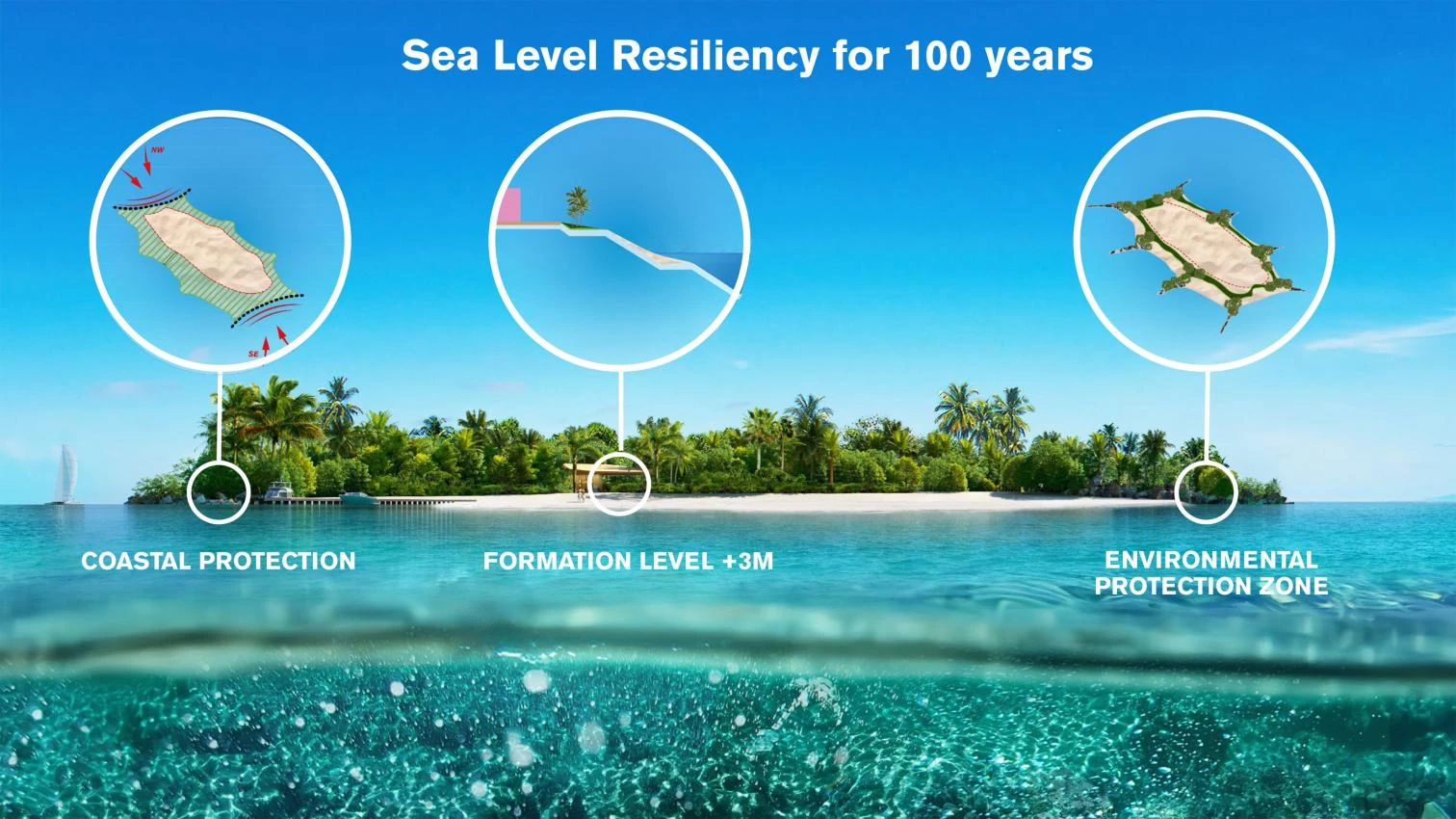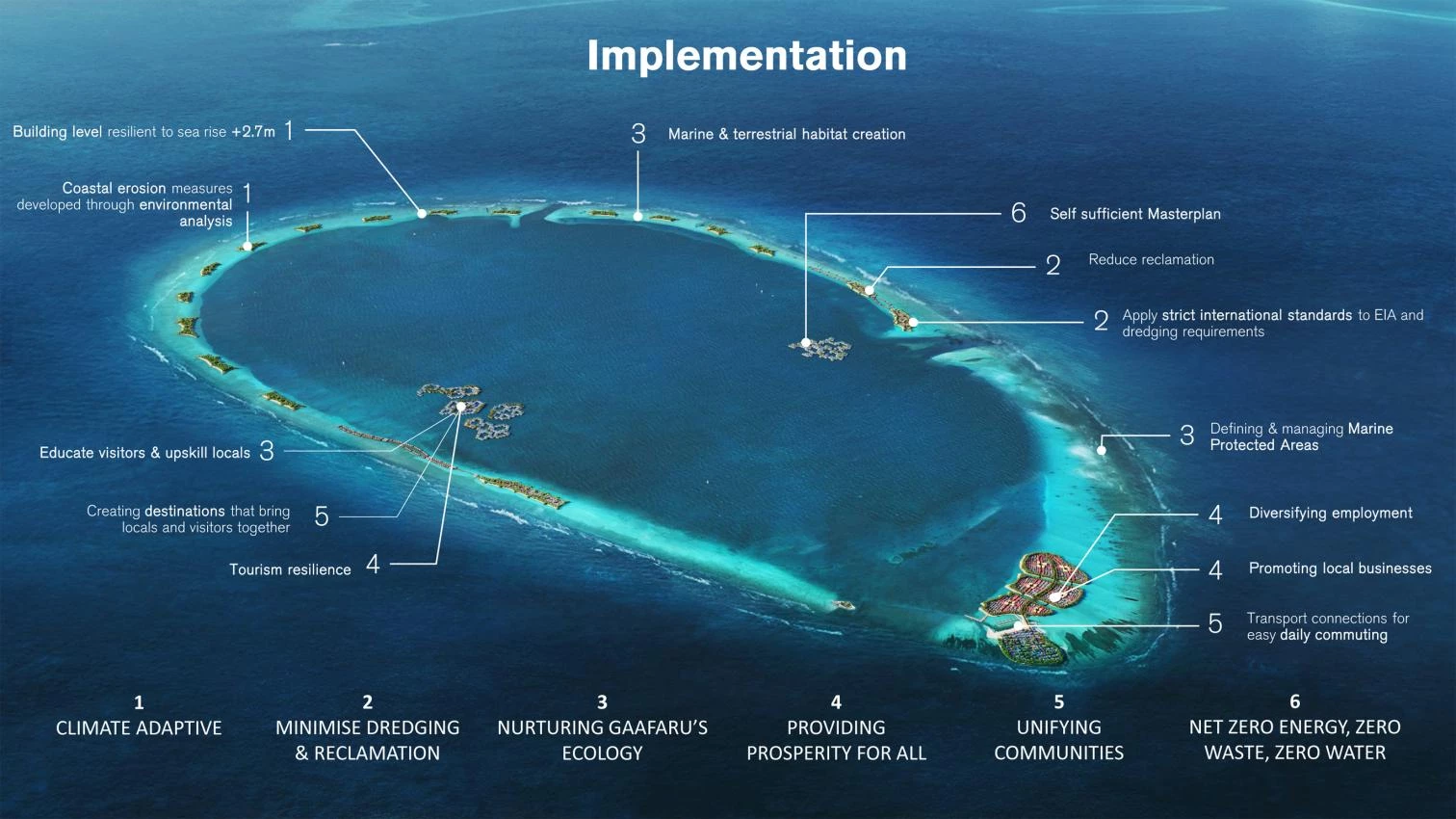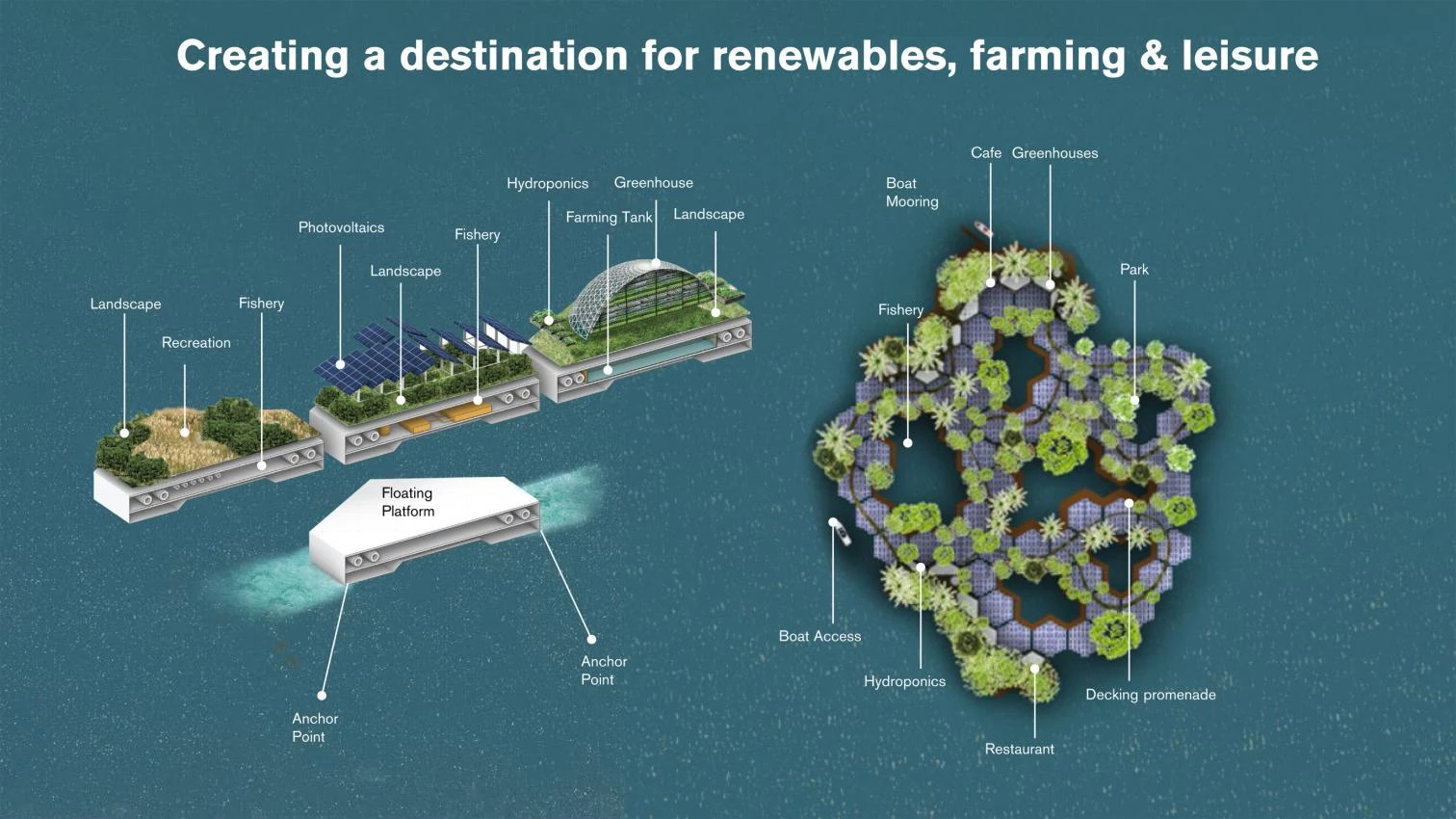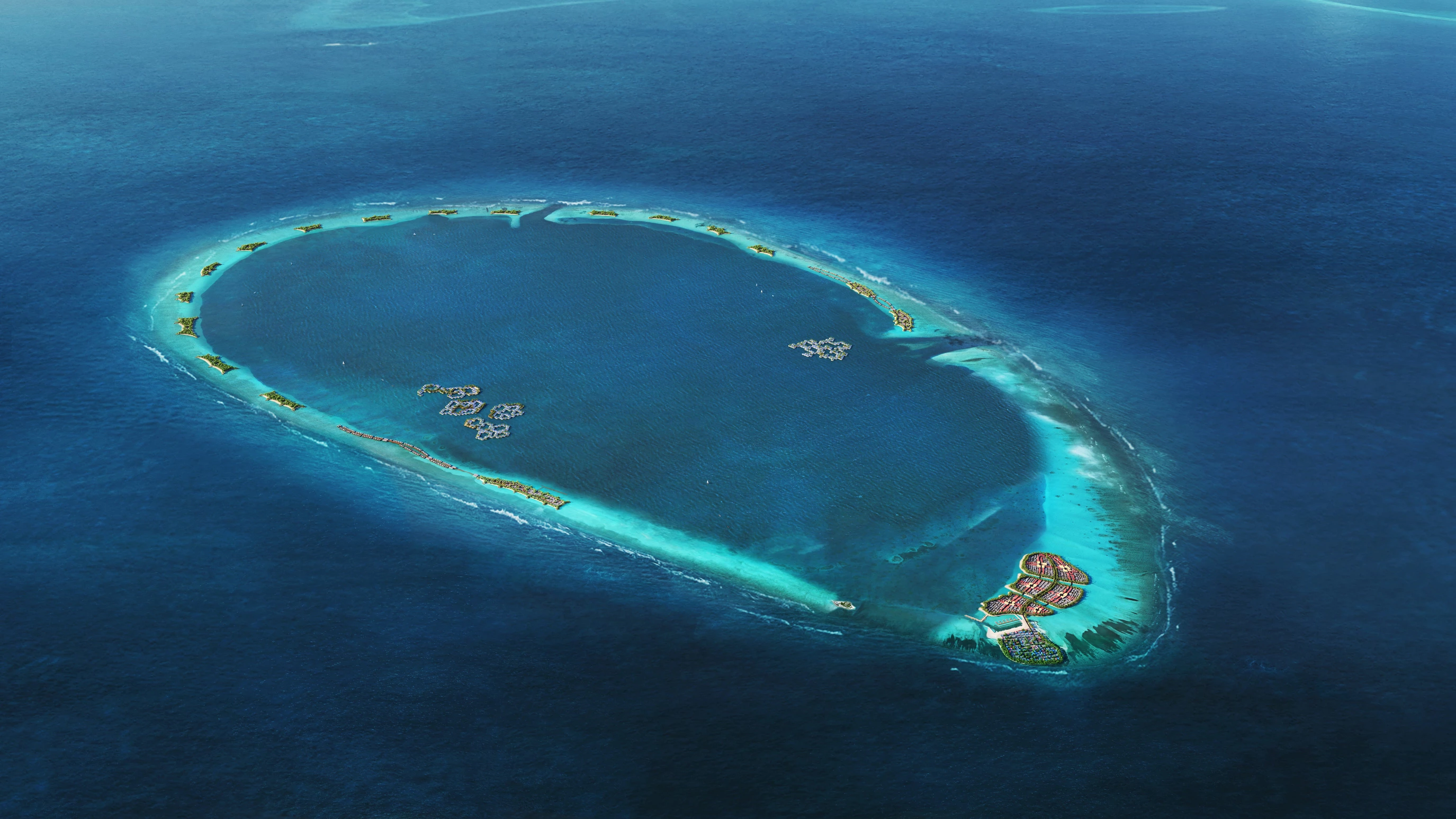Masterplan for Gaafaru island in the Maldives
Foster + Partners- Type Landscape architecture / Urban planning Masterplan
- City Gaafaru
- Country Maldives
The firm Foster + Partners has developed a masterplan for Gaafaru, an inhabited island in the Maldives, in the Indian Ocean. The project puts forward six principles to ensure a sustainable and resilient future for the island of Kaafu Atoll. Gaafaru is suffering from the effects of climate change. Rising sea levels put it at severe risk of flooding in the next century, with half of its land in danger. The effects of pollution and increasing sea temperatures also threaten its rich diversity. The Maldives’ economy relies on tourism and is highly dependent on imports for energy, food, and other goods.
The masterplan holistically addresses the island’s challenges by:
1. Adapting to rising sea levels and extreme conditions
Land will be sustainably reclaimed (using low-impact construction techniques) and built at a higher level to decrease risk of flooding. Environmental protection zones with native planting act as a green buffer to ensure resilience against extreme conditions.
2. Minimizing harmful dredging and land-reclamation practices
Dredging practices have been carefully considered, with strict regulation standards and the best international practices applied. Land will be reclaimed by means of piling, floating, and berms to minimize environmental impact. 70% of reclaimed land will be given over to marine and terrestrial habitats for native plants. Pilot projects could also offer new methods for land recuperation, such as 3D-printed modules.
3. Nurturing ecology
Marine Protected Areas will be created to preserve habitats, species, and processes essential to healthy functioning marine ecosystems.
4. Enhancing prosperity for all
The plan aims to diversify economic opportunities in the Maldives and leverage Gaafaru’s population growth. New employment opportunities for local people will be created through resorts and floating platforms featuring modular units for energy and local food production.
5. Unifying communities
The masterplan will implement a mobility network that connects local areas with new resorts. Recreational parks will be created on the floating platforms.
6. Establishing net-zero energy, water, and waste
All fruit and vegetables will be produced through local farming, hydroponics, and greenhouses on the new floating plaforms, which will also provide energy through photovoltaics. Gray and black water will be collected, treated, and reused for irrigation and cleaning.
